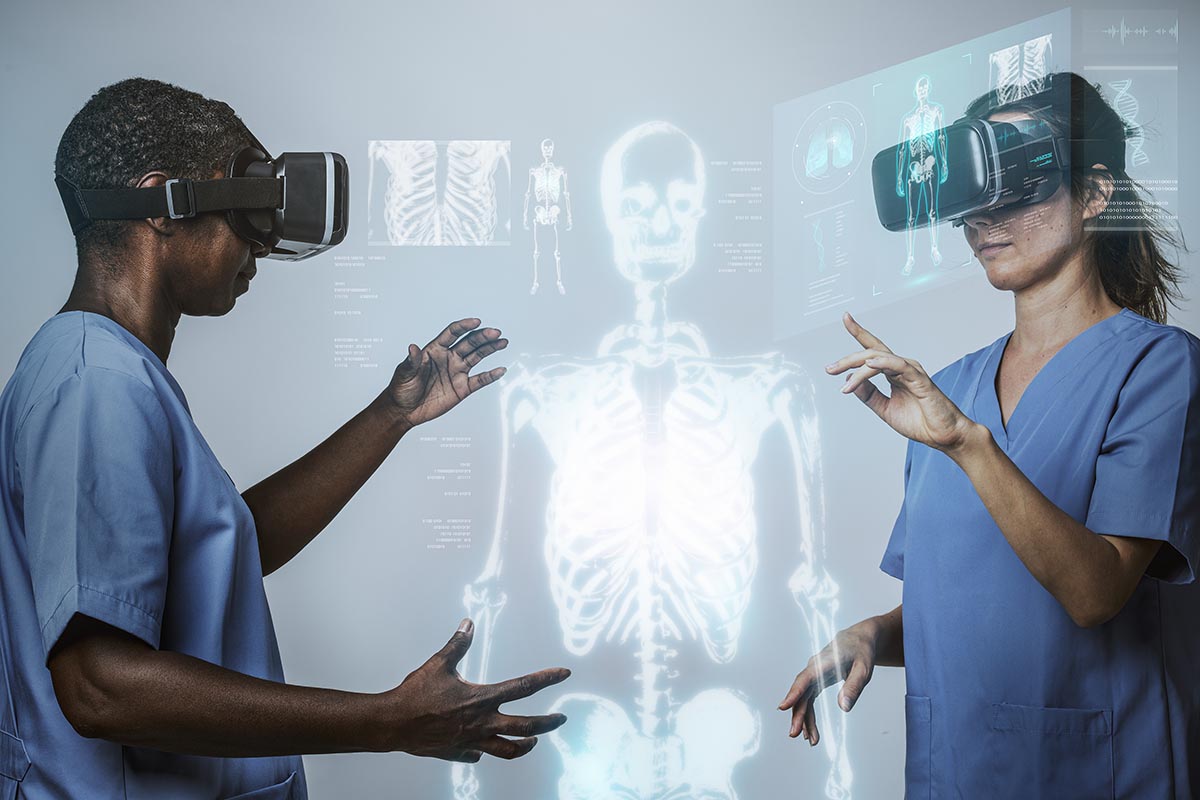Technology-Driven Philanthropy: Sherief Abu-Moustafa Explores How Technology Is Transforming Mental Healthcare
Mental healthcare can be complex and challenging, but with access to innovative technologies, it is becoming easier to increase the impact and help those in need. Technology has revolutionized mental healthcare by providing powerful opportunities for effective collaboration globally, expanding reach with targeted digital communication platforms, creating new ways to engage patients, and offering real-time data tracking solutions.
Sherief Abu-Moustafa explores how technology transforms mental healthcare and how healthcare organizations can best use these technologies to increase their impact.
Automation Improves Efficiency and Access to Care
In today’s digital age, technology has become essential for many healthcare organizations, including mental healthcare providers. With the right tools and strategies, technology can help these organizations improve their efficiency and access to care. By automating administrative tasks like appointment scheduling, medical record-keeping, and insurance claims, mental healthcare providers can focus their time and energy on more critical tasks, such as providing high-quality care and developing personalized treatment plans.
Automation also helps with outreach efforts. Social media, for instance, can reach a broad audience quickly and effectively, allowing mental healthcare providers to share news and updates about their practice, events, and initiatives. Automated messaging tools can help streamline patient communication and keep them engaged in their care.
Technology-driven Philanthropy: Data Tracking Increases Transparency and Accountability
Technology also provides ways to track data and measure the success of mental healthcare practices. This data can help organizations make better decisions, provide honest patient feedback, and ultimately increase their impact. Data tracking also helps build patient trust by clarifying how their personal information is used and where it goes.
Using technology to collect information and track progress also allows mental healthcare providers to respond more quickly to patient conditions or environmental changes in the field. By responding promptly to market shifts or political landscape shifts, mental healthcare providers can adjust course if needed and ensure they are maximizing their resources.
Telemedicine Connects with Patients in Innovative Ways
Telemedicine is a powerful tool for mental healthcare providers. It can help providers expand access to care and give patients direct access to mental health professionals. Patients can use telemedicine to create meaningful connections with their providers, discuss their concerns, receive therapy sessions, and much more.
Sherief Abu-Moustafa firmly believes that mental healthcare providers can better serve their patients and take their impact to the next level with the right technology. He encourages healthcare organizations to embrace innovative technologies and strategies to increase efficiency, transparency, and reach. By doing so, mental healthcare providers can make a more significant impact on the world.
AI Creates Interactive Experiences to Engage Patients
Technology can also be used to create interactive and immersive experiences for patients. For example, artificial intelligence (AI) can create virtual simulations of mental health scenarios and allow patients to explore different aspects of their mental health. This AI-driven experience will enable patients to feel more connected to their mental healthcare providers and learn about their mental health engagingly.
AI can also analyze data and craft personalized treatment plans tailored to patients. This personalized messaging is more likely to resonate with patients and help them become more informed and engaged in their mental healthcare.
Machine Learning Enhances Decision-Making
Machine learning can help mental healthcare providers understand and use their data to make decisions. Machine learning algorithms can process large amounts of information quickly and accurately, assisting providers in making more informed decisions about their operations and plans for the future.
With the right technological tools, mental healthcare providers can better serve their patients and significantly impact their mental health. By embracing innovative technologies, they can improve efficiency, transparency, and reach while deepening patient relationships.
Technology Driven Philanthropy: Best Practices for Incorporating Technology in Mental Healthcare
Incorporating technology into mental healthcare can improve patient outcomes and help healthcare providers work more efficiently. However, following best practices is crucial to ensure the technology is used effectively and ethically.
Healthcare providers should take the time to understand the available technologies and how they can help them achieve their goals. This includes understanding the features and capabilities of different technologies and assessing how they can be integrated into existing workflows.
 Technology-driven philanthropy can be used in mental healthcare, including teletherapy, online support groups, and mobile apps. It’s up to each healthcare provider to decide what technology best fits their unique needs. However, it’s essential to consider the technology’s features, the potential impact on patient outcomes, and ethical implications before implementing it.
Technology-driven philanthropy can be used in mental healthcare, including teletherapy, online support groups, and mobile apps. It’s up to each healthcare provider to decide what technology best fits their unique needs. However, it’s essential to consider the technology’s features, the potential impact on patient outcomes, and ethical implications before implementing it.
In conclusion, technology can be a powerful tool in mental healthcare, but it must be used responsibly and effectively. By following best practices when incorporating technology into mental healthcare, healthcare providers can ensure that it benefits their patients and furthers their mission.



















